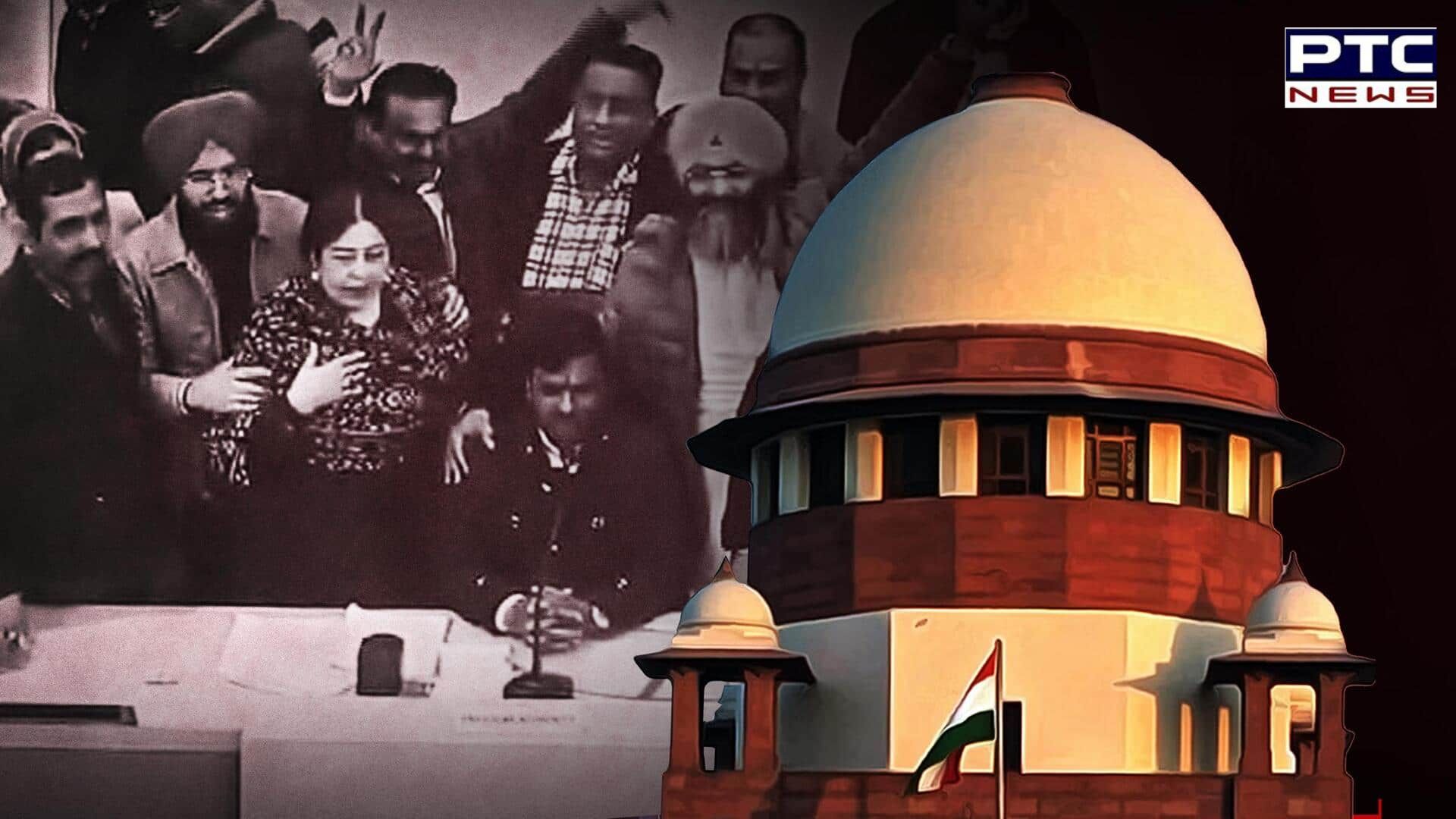

Chandigarh mayoral poll result: What is Article 142, cited in Supreme Court ruling?
Chandigarh mayoral poll result: The Supreme Court on Tuesday settled the weeks-long controversy surrounding the Chandigarh mayoral elections held on January 30. The top court overturned the initial result of the BJP candidate's victory and declared the AAP-Congress candidate as the rightful winner.
The apex court also found Presiding Officer Anil Masih guilty of misdemeanour, accusing him of a deliberate attempt to deface eight ballots cast in favour of the petitioner - AAP's Kuldeep Kumar.
The SC bench - comprising Chief Justice of India D Y Chandrachud, Justices J B Pardiwala and Manoj Misra - invoked its plenary power under Article 142 of the Constitution to ensure "complete justice", asserting that the returning officer's announced result clearly violated the law.
“We are of the considered view that in such a case, this court is duty bound, particularly in the context of its jurisdiction under Article 142 of the Constitution, to do complete justice to ensure that the process of electoral democracy is not allowed to be thwarted by such subterfuges," the SC said.
Article 142 gives the Supreme Court the unique power to do "complete justice" between the parties in cases where the law or statute does not provide a remedy. In those cases, the court can go above and beyond to resolve a dispute in a way that would fit the facts of the case.
Article 142 empowers the court to ensure complete justice, thereby resolving the legal dispute between the parties.
The Article deviates from the traditional equity principle that governs the law, making it a unique provision.
While granting relief, the Supreme Court may deviate from strict legal applications based on the unique circumstances of each case. Article 142 empowers the court to relax the application of the law or completely exempt parties from legal rigours during the delivery of justice.
It enables the court to ensure complete justice when necessary.
Despite its broad scope, the Supreme Court clarified in a 2023 ruling that Article 142 is not universally applicable and may not be invoked in all cases.
Paytm stock surges 5% to upper circuit today: Possibility of full recovery?
Lottery winner claims Rs 2,800 crore prize; company cites 'error'
'Anupamaa' actor Rituraj Singh dies at 59 in cardiac arrest
Supreme Court to review Chandigarh poll ballot papers amid tampering concerns
-
